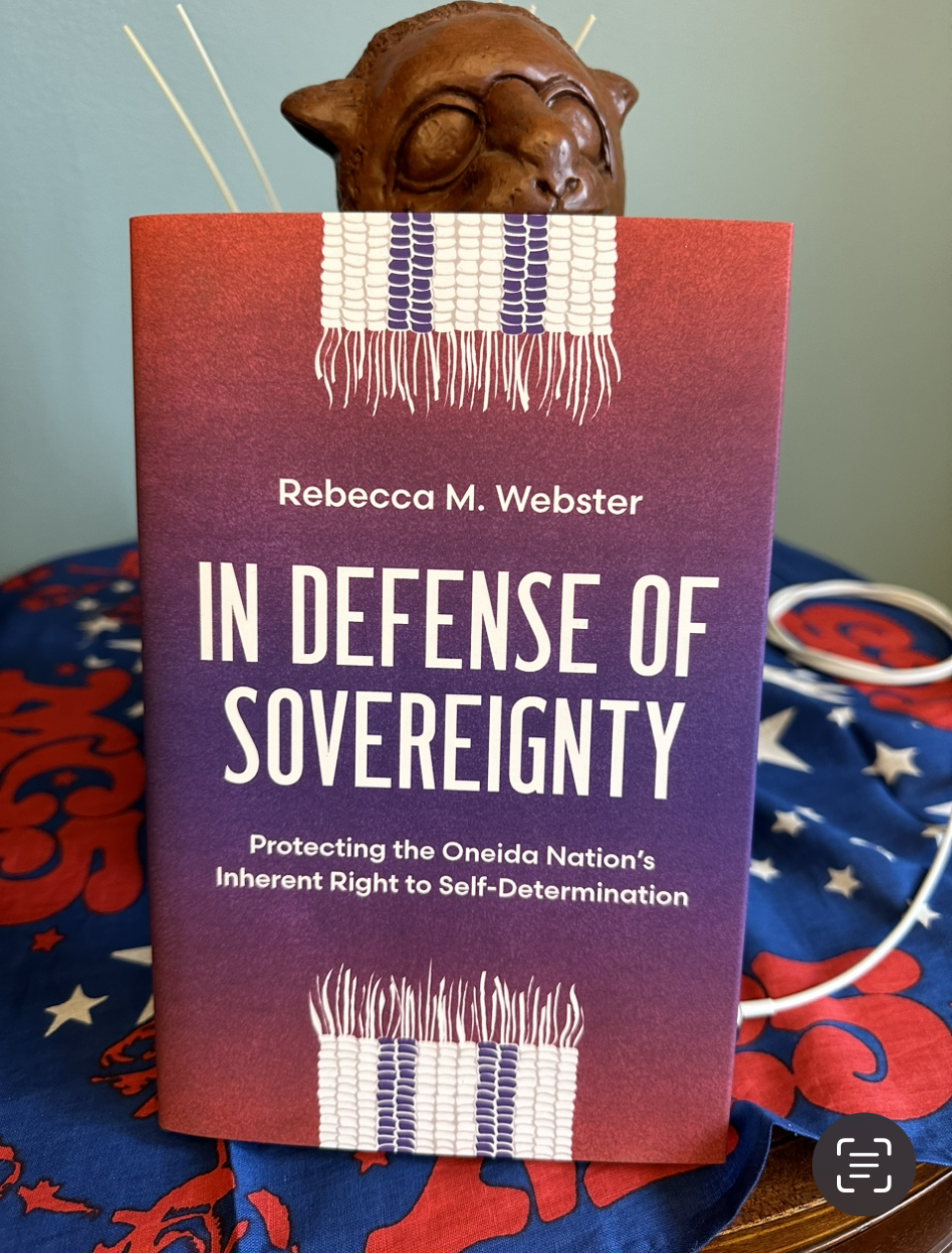
You can buy it here.
| In Defense of Sovereignty Protecting the Oneida Nation’s Inherent Right to Self-Determination Rebecca M. Webster Foreword by Richard Monette With contributions by James R. Bittorf, William Gollnick, Frederick E. Hoxie, Arlinda F. Locklear, and James W. Oberly “This valuable book lays out the features of a legal and political strategy to defend a reservation boundaries case. This material is thrilling where tribal citizens detail their ongoing, real-world struggles with the Village of Hobart. Successful and compelling.” —Matthew L. M. Fletcher, author of Ghost Road: Anishinaabe Responses to Indian-Hating A nuanced history by an Oneida Nation citizen directly involved in the litigation The Oneida Nation has been engaged in legal conflicts to retain its sovereignty and its lands since forced removals in the 1820s from New York to what would become the state of Wisconsin. Legal scholar Rebecca M. Webster examines this history, including the nation’s treaties with the US and focusing especially on its relationship with the village of Hobart, Wisconsin. Since 2003, six disputes have led to litigation—the result of attempts by the local government to regulate the nation, repudiate its sovereignty, and relegate its government to the position of a common landowner, subject to municipal authority. In Defense of Sovereignty shares the perspective of a nation citizen directly involved in the litigation, augmented by contributions from historians, attorneys, and a retired nation employee. It is an intimate and unflinching account of the impact of these jurisdictional battles and what is at stake for the future. Its lucid analysis is an invaluable contribution to public debates about the inherent right of Indigenous nations to continue to exist and exercise self-governance within their territories without being challenged at every turn.  Rebecca M. Webster, an assistant professor in the American Indian studies department at the University of Minnesota, Duluth, is a former senior staff attorney for the Oneida Nation. Rebecca M. Webster, an assistant professor in the American Indian studies department at the University of Minnesota, Duluth, is a former senior staff attorney for the Oneida Nation. |
You must be logged in to post a comment.